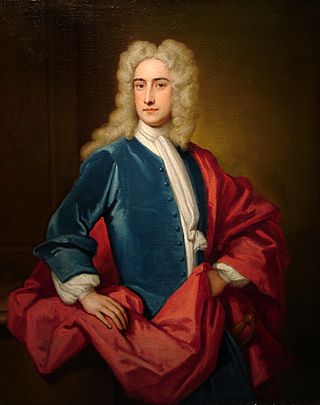
Samuel Sandys, 1st Baron Sandys, was a British Whig politician who represented Worcester in the House of Commons from 1718 until 1743, when he was created Baron Sandys. He held numerous posts in the government of the United Kingdom, namely Chancellor of the Exchequer, Leader of the House of Commons, Cofferer of the Household and First Lord of Trade. He was also a justice in eyre.
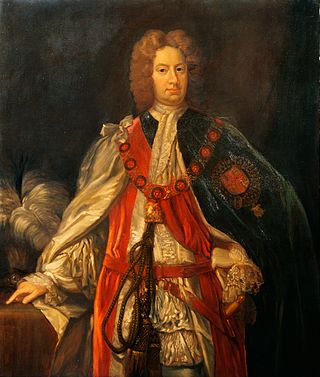
James Graham, 1st Duke and 4th Marquess of Montrose was a Scottish aristocratic statesman in the early eighteenth century.

Robert Dundas of Arniston, the younger, FRSE was a Scottish judge. He served as Solicitor General for Scotland from 1742 to 1746, as Lord Advocate from 1754 to 1760, and as Member of Parliament for Midlothian from 1754 to 1761. He was Lord President of the Court of Session from 1760 to 1787, losing his popularity for giving his casting vote against Archibald Douglas in the famous Douglas Cause.

Restalrig is a small residential suburb of Edinburgh, Scotland. It is located east of the city centre, west of Craigentinny and to the east of Lochend, both of which it overlaps. Restalrig Road is the main route through the area, running from London Road, at Jock's Lodge, to Leith Links. It is in the ward of Lochend.
George de Lawedreof Haltoun was a Burgess and Provost of Edinburgh in the early 15th century.

Thomas Hay, 9th Earl of KinnoullPC, styled Viscount Dupplin from 1719 to 1758, was a Scottish peer, British politician, and scholar.
Robert Lauder of The Bass was an important noble in Haddingtonshire, the Merse, and Fife. Stodart remarks that "to 1600 the barons of the Bass sat in almost every parliament". He was a firm supporter of Mary, Queen of Scots whom he accompanied to Carberry Hill on 14 June 1567, and fought for at the battle of Langside.

Robert McQueen, Lord Braxfield was a Scottish advocate and judge.
David Lindsay was a Church of Scotland minister and prelate active in the seventeenth-century.
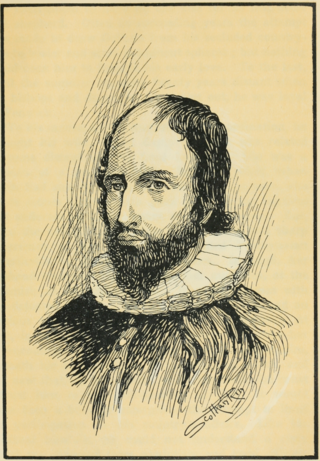
William Guthrie (1620–1665) was a Scottish Covenanter minister and author. He was the first minister of Fenwick parish church in Ayrshire, Scotland. He is known primarily for his book on assurance, The Christian's Great Interest.

Francis Scott, Earl of Dalkeith was a Scottish nobleman.

William Mure, known as others of his family as William Mure of Caldwell, was a Scottish lawyer and politician. He became a Baron of the Scots Exchequer and was a friend of Prime Minister Lord Bute and David Hume.

James Fisher (1697–1775) was one of the founders of the Scottish Secession church. He was born at Barr, on 23 January 1697, the second son of Thomas Fisher, minister of Rhynd. He was educated at University of Glasgow. He was licensed by the Presbytery of Perth on 31 October 1722 and subsequently called and ordained on 23 December 1725. He dissented and joined with his father-in-law Ebenezer Erskine in his appeal and complaint to the Assembly of 1733. He was one of the four original members of the Associate Presbytery founded at Gairney Bridge on 6 December 1733. He was deposed by the General Assembly on 15 May 1740, but continued to preach in the parish church till 13 August 1741, when he was forcibly ejected on a sheriff's warrant. He then preached in a tent on Kinclaven brae during the time he remained in the district. On 8 October 1741 he became minister of Shuttle Street Associate Congregation, Glasgow. He was deposed by the Associate (Antiburgher) Synod on 4 August 1748 over the question of the Burgess Oath. He was appointed Professor of Divinity by the Associate (Burgher) Synod in 1749. He died on 28 September 1775.

David Hume, Baron Hume of Ninewells FRSE (1757–1838) was a Scottish advocate, judge and legal scholar, whose work on Scots criminal law and Scots private law has had a deep and continuing influence. He is referred to as Baron Hume to distinguish him from his uncle, David Hume the philosopher.

Alured Clarke (1696–1742) was Dean of Exeter between 1741 and 1742.
Sir Sidney Stafford Smythe, PC was an English judge and politician.

Thomas Murray was a Scottish printer and writer. His most noted work is The Literary History of Galloway.
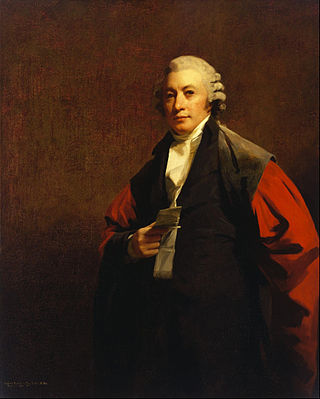
Robert Hodshon Cay FSSA LLD was Judge Admiral of Scotland overseeing naval trials. He was husband of the artist Elizabeth Liddell, father of John Cay FRSE and maternal grandfather of James Clerk Maxwell.
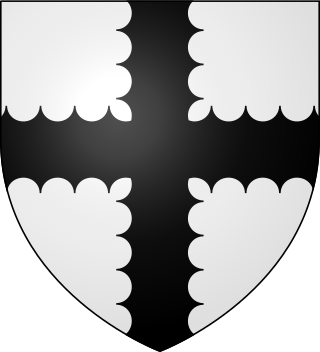
William St Clair was a Scottish nobleman and the 16th Baron of Roslin.

James St Clair was a Scottish nobleman and the 18th Baron of Roslin.
















